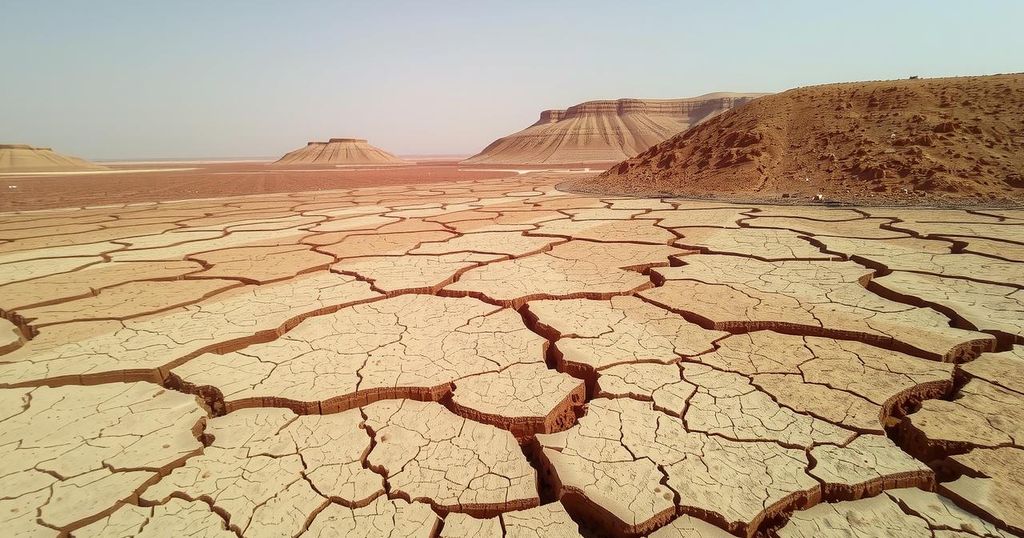Impact of Climate Change on Pakistan: Finance Minister’s Insights and Initiatives
Finance Minister Muhammad Aurangzeb stated that climate change has adversely affected food production and the livelihoods of millions in Pakistan. The country ranked as the most vulnerable to climate change in 2022, primarily due to severe flooding events. The government is launching a glacier conservation strategy to mitigate these risks, while also emphasizing the need for capacity building and investment strategies.
On Friday, Finance Minister Muhammad Aurangzeb expressed that climate change has severely affected food production and the livelihoods of millions in Pakistan. In fact, Pakistan was identified as the most vulnerable nation to climate change in 2022, according to the Climate Risk Index (CRI) for 2025 report from the European think-tank Germanwatch, which highlighted the country’s struggle with unprecedented floods caused by extreme weather events.
During an event in Islamabad commemorating the first ‘World Day of Glaciers,’ the finance minister noted that the rising global temperatures have disturbed the water cycle, which adversely impacts crop yields and food security. Furthermore, he detailed the challenges posed by glacial lake outburst floods (GLOFs) during the 2022 floods, indicating that Pakistan has over 3,000 glacial lakes, with 33 being highly unstable, jeopardizing more than seven million residents.
Aurangzeb highlighted the alarming statistics related to glacier protection and announced the development of a Pakistan glacial protection and resiliency framework, which he described as a timely initiative. He pointed out that despite receiving $10 billion in pledges post the 2022 floods, only one-third of that amount was delivered due to challenges in creating viable, bankable products for investment.
The first ‘World Day of Glaciers’ aims to facilitate dialogue and take action regarding the impact of glacier melt on global water, food, and energy security. In conjunction with this observance, the Pakistani government will introduce its inaugural ‘Glacier Conservation Strategy,’ aimed at safeguarding these crucial ecosystems and enabling collective efforts for their preservation.
Melting glaciers pose risks of extreme weather events and evolving disasters, particularly for downstream communities and vulnerable infrastructures. Since the 1800s, human activities have significantly accelerated glacier melting, which is critical for the global climate and freshwater supply. The United Nations has proclaimed 2025 as the International Year of Glaciers’ Preservation to underscore glaciers’ importance, advocating for hydrological and climate services for those reliant on these vital resources.
In summary, climate change poses a significant threat to Pakistan’s food security and livelihoods, particularly due to the effects of glacial retreat and extreme flooding. The country is actively working to establish a framework for glacial protection and conservation as part of its broader strategy to address these challenges. Furthermore, initiatives commemorating the first ‘World Day of Glaciers’ aim to foster global awareness and action regarding the importance of glacier preservation and its implications for water and food security.
Original Source: www.dawn.com




Post Comment